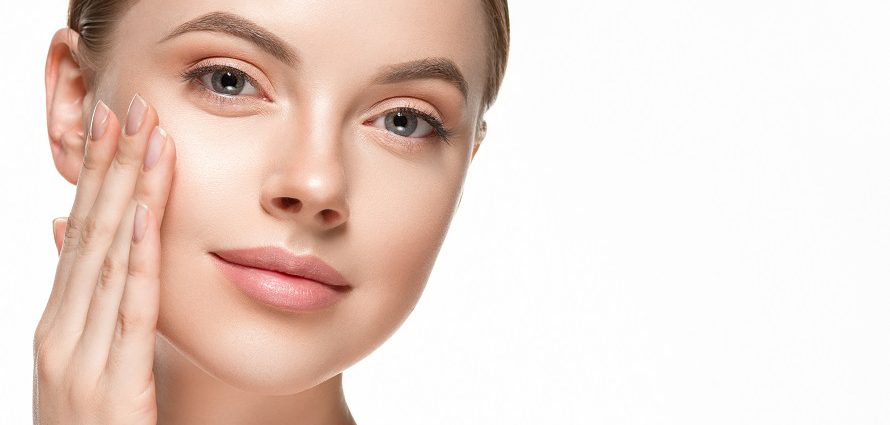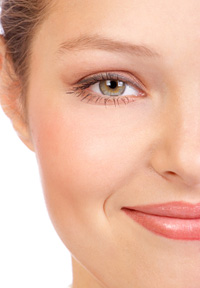Buccal Fat Removal – Cheek Reduction Surgery

Reviewed by Scott R. Miller, MD, FACS
Full, round cheeks are one thing, but excessively puffy chipmunk cheeks are another thing altogether. Chubby cheeks may be cute when you are a child, but as an adult, they may leave you feeling less than thrilled with your appearance. If you are concerned about your chubby cheeks, buccal (pronounced BUCK-ull) fat extraction may be an option for you.
Buccal fat extraction, also known as cheek reduction surgery, is a facial plastic surgery procedure in which fat is removed from your cheeks.
Are You a Candidate for Buccal Fat Extraction?
You may be a candidate for buccal fat extraction if you are healthy enough to undergo surgery and feel that your cheeks are excessively puffy or chubby.
The best way to find out if you are a candidate is to consult a board-certified plastic surgeon with extensive experience performing cheek reduction and other facial plastic surgery procedures. Start your search for a local surgeon now.
During the consultation, your surgeon will examine your facial anatomy, compile your medical history (including all medications you are currently taking) and listen to your concerns about your cheeks and your aesthetic goals. Based on the results of this consultation, he or she will determine whether you are a suitable candidate for buccal fat extraction.
Your surgeon will discuss the procedure in detail, including potential long-term outcomes of this surgery. As you age, your face naturally thins, so this surgery is not for everyone. What’s more, if you gain a large amount of weight following cheek reduction surgery, your cheeks may become chubby once again. Age, anatomy and facial shape must be taken into consideration. These are important factors that should be discussed during your consultation.
Preparation for Cheek Reduction Surgery
Your surgeon should provide you with detailed instructions on what to do and what not to do prior to your procedure. These guidelines will include what prescription and over-the-counter (OTC) medications and herbal supplements are acceptable to take in the days leading up to your surgery and during your recovery.
If you are a smoker, your surgeon will likely require you to quit smoking prior to and following surgery. Smoking increases the risks of any surgery and can interfere with your recovery and compromise your results. Learn more in our comprehensive article on the dangerous combination of smoking and cosmetic surgery.

Buccal Fat Extraction: The Procedure
The buccal fat extraction procedure takes about an hour and is performed as an outpatient procedure under general anesthesia or local anesthesia with sedation. It may be combined with other procedures, such as facelift, brow lift or eyelid surgery, in which case the treatment time will be longer.
Once the anesthesia has been administered, your surgeon makes incisions inside your mouth. These incisions are about two to four centimeters long and are located opposite your second upper molar. The surgeon removes buccal fat through these incisions before closing them with sutures. Your surgeon may then place antibiotic-soaked gauze along the incisions and/or wrap your head in a pressure dressing. Ask about your surgeon’s preference and his or her reason for it.
Cheek Reduction Risks
Like all surgeries, buccal fat reduction poses risks. Risks of cheek reduction include:
- Anesthesia complications
- Bleeding
- Infection
- Nerve damage
- Excessive scar tissue
- Asymmetry
- Lumps on the cheeks
- Puckering of the cheek skin
- Dissatisfaction with the aesthetic results
These risks can be minimized by choosing a highly qualified, board-certified plastic surgeon and following his or her pre- and postsurgical guidelines. For example, taking all your antibiotics as prescribed can help prevent infection, while avoiding aspirin and other nonsteroidal anti-inflammatory medications can help prevent bleeding.
Buccal Fat Extraction Recovery
Immediately following your cheek reduction procedure, you may feel groggy and nauseous from the anesthesia. There may be swelling, bruising and some discomfort. Your surgeon can prescribe medications to help with discomfort. You will be instructed to sleep with your head elevated.
Buccal extraction incisions are inside your mouth, so eating can be a challenge immediately after your surgery. You will need to eat soft foods for three to five days after buccal extraction and rinse after each meal. Also, you should avoid highly acidic foods such as oranges and tomatoes, which can aggravate the incisions.
Often, absorbable sutures are used, so removal is not necessary. Any swelling should have subsided significantly after the first week of your buccal fat extraction recovery. Follow your surgeon’s instructions regarding return to normal activities.
Cheek Reduction Cost
The cost of buccal fat extraction can range from $2,000 to $5,000, depending on a variety of factors, including the surgeon’s experience, the location of his or her practice and the type of anesthesia. In general, plastic surgery costs include the surgeon’s fee, anesthesia fee, facility fee, lab fees, medication costs and the cost of related items such as bandages.
The upfront cost of buccal fat extraction is also increased if you have other procedures performed at the same time. However, you will save money in the long run because you only pay the facility and anesthesia fees once. For example, lip reduction and cheek reduction may be performed together, in which case the overall cheek reduction and lip reduction cost will be lower than if you have the procedures performed in separate surgical sessions.
Cosmetic plastic surgery procedures are usually not covered by insurance. If cost is an issue for you, ask your surgeon about payment plans or look into patient financing options.



